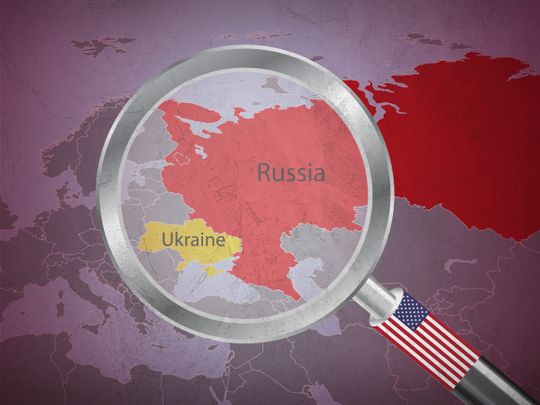
The war between Russia and Ukraine has turned into a war of attrition, as NATO’s Secretary-General Jens Stoltenberg asserted earlier this month when he said, “Western countries should be ready for a long-term war of attrition”.
The war of attrition he referred to is completely different from the one we will discuss. The NATO official was talking about a military situation, which is highly unlikely due to the comprehensive destruction of Ukraine’s military structure. What we mean by the war of attrition here is a war of economic depletion in which the balance of power varies, as each side has its own strengths and weaknesses that will determine a winner.
We will try to clarify some of the strengths and weaknesses of the two sides, to help draw logical conclusions about who will raise the flag at the finish line. As for the NATO countries and those supporting them, their strengths lie in having financial hegemony over the global Swift banking payments system, in addition to the control exerted by transnational companies in many sectors.
Heavy oil dependence
Meanwhile, their weaknesses include a heavy dependence on imported energy sources, which cannot be disposed with for years to come, and a similar need for imported minerals and food commodities. Plus, there is the overhang of economic crises that afflicted their economies in the past two decades. These economies have retreated from the ranks of the most advanced and were outpaced by the economies of China, India, Brazil, and Indonesia.
As for Russia and those supporting it, including large and economically important countries, their most important strengths lie in their possession of enormous energy resources, which allow them to have almost complete control over global energy supplies, as well as food and minerals.
Hence, Russia had turned into a sizeable consumer market that major Western companies were dependent on, and which promoted angry reactions by their people against their governments for the strict sanctions against Moscow. The Pacific Investment Management Company (Pimco) warned the US Treasury of the consequences of these sanctions, with putative Western losses as a result of the boycott coming to $400 billion.
Filling the Swift gap
Russia’s most important weakness includes the dependence on the American financial payment system, as well as on importing Western technologies and many consumer goods. Therefore, the winner in the war of economic attrition will be decided by the ability of each side to adapt to circumstances, by either cutting off what they import from rivals or finding alternatives.
For NATO countries, abandoning Russian energy resources is not only impossible, but also disastrous, as evidenced by the unprecedented wave of inflation in the West, which ranges between 8–10 percent, just for a partial boycott of a small percentage of Russian oil. Meanwhile, gas is still flowing in massive quantities to keep European economies afloat.
The wave of inflation led to a significant rise in prices, which sparked waves of popular discontent and grumbling in the US and the EU. The same applies to food commodities and minerals, albeit less severely. For example, the US nuclear industry can find an alternative to its imports of Russian minerals.
As for Russia’s ability to withstand the implications of the ongoing economic war of attrition, it has been able to reduce its dependency on the Swift payments system by signing trade and financial agreements with main partners, such as India and China, and adopting their national currencies in the exchange.
In addition to using an alternative Chinese system for financial payments, which threatens Swift, Russia also adopted the rouble as an alternative to the dollar and the euro in its gas sales to Europe. Moreover, China is fully prepared to provide Russia with advanced technologies and long-term consumer goods that Russia used to get from the West.
So, the ongoing ‘violent’ war of economic attrition will last for more months, after which the world will be different from what we used to know before.








